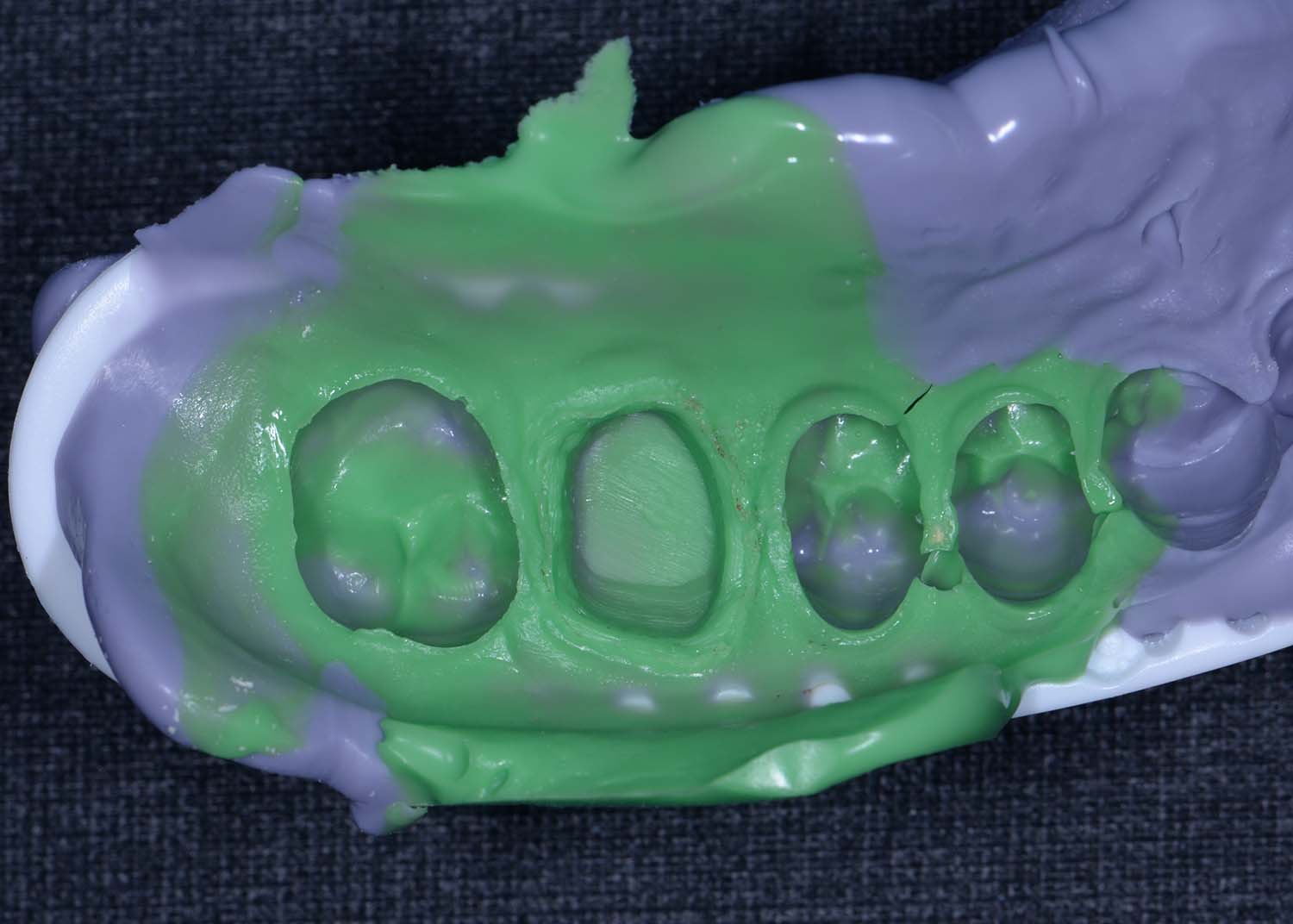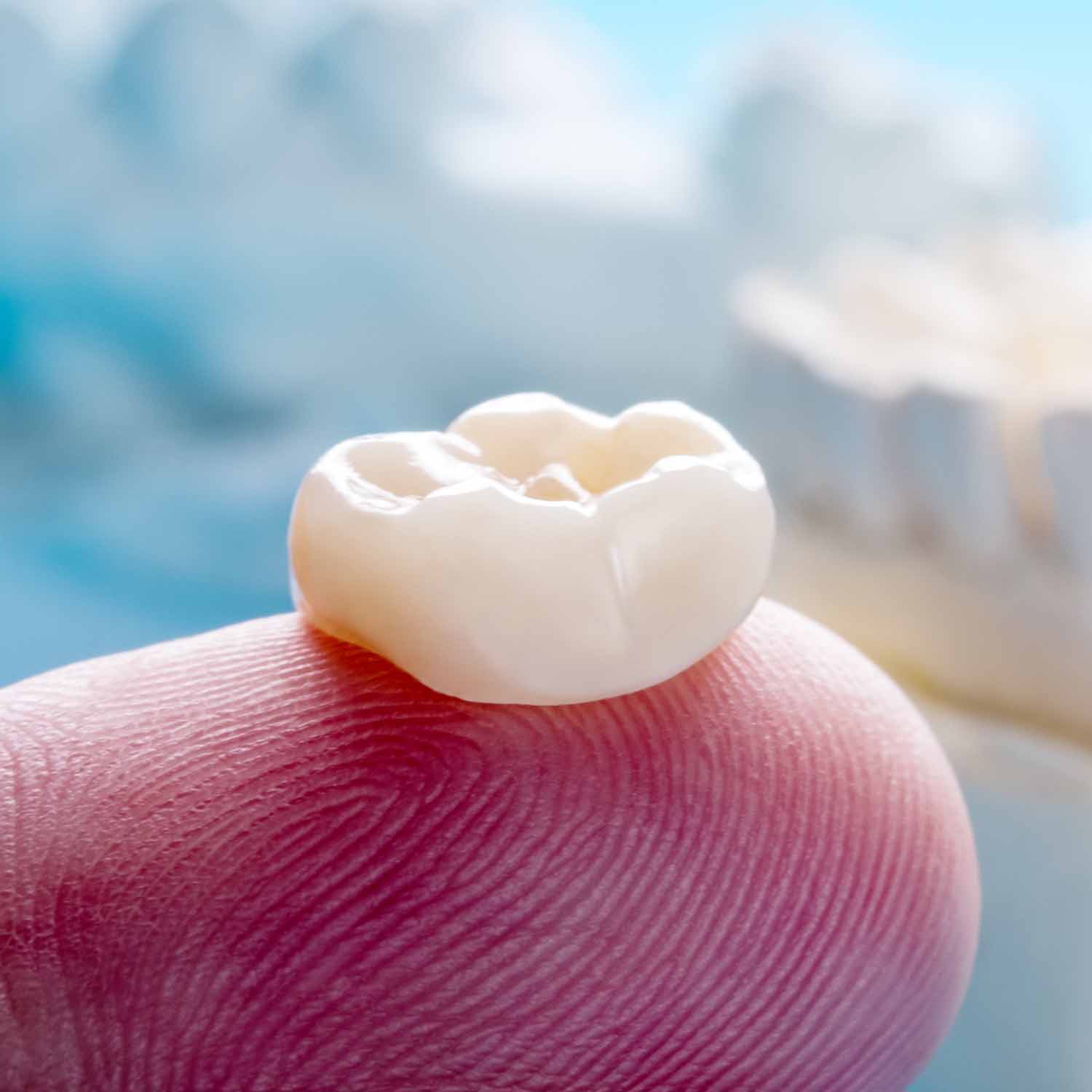Maintaining proper dental hygiene is a lifetime commitment, and all it takes is a short lapse in brushing or cleaning for plaque to build up. If you don’t go to the dentist and have your cavity filled, it will progressively worsen to the point that you may need dental crowns.
There are also other times when a dentist may recommend a crown, such as tooth damage that can occur while playing sports or tripping and falling.
What are Dental Crowns?
Crowns are common in dentistry, and they are a “cap” that goes over the tooth. Fillings can solve a lot of tooth-related problems, and for the issues they cannot correct, crowns are often recommended.

Often, the best way to describe a crown is that it’s a jacket for your tooth.
The crown fits tightly on the tooth and can be molded to match the natural shape of your original tooth. Crowns help you achieve many things, such as improving your tooth’s:
- Appearance
- Strength
- Size
- Shape
Crowns will require you to have an impression of the tooth taken first. The impression is often sent to a lab that will create the crown, but many dental offices do have the ability to make crowns in-house.

While waiting for the crown, a temporary crown is placed on the tooth to offer protection.
Once the crown is finished, the dentist will remove the temporary, ensure that the crown fits well and then cement the crown in place. The crown will cover the entire visible portion of the tooth and offer exterior protection.
Types of Dental Crowns
Crowns may cover the entire tooth, but there are 3/4 crowns or onlays which will not. These crowns are designed to not cover as much surface area of the underlying tooth as traditional crowns.
Instead, these crowns require the dentist to:
- Remove the impacted area of the tooth
- Reshape the tooth
- Place the crown
We'll identify which type of crown is best for you.
Dental Crown Material
What's the right material for your dental crown? We’ll discuss your options and costs during your visit. However, the following materials are the most common:
- 100% Resin: Crowns made of resin are less expensive, so they’re a popular choice among patients. The lower cost does come with the downside of wearing down faster than other materials and potentially breaking.
- 100% Ceramic / Porcelain: Anyone with allergies to metal will appreciate a ceramic or porcelain crown. The crown isn’t as strong as metal or porcelain/metal crowns, but they offer the most natural coloring available. If you need a crown for a visible tooth, this is the optimal material for you.
- Metal: Numerous metals may be used to make a crown, including nickel, gold, palladium or chromium. The main selling point of metal crowns is that they wear down much slower than any other material and only a small amount of your tooth must be removed to apply the crown. Metal also rarely breaks or chips. What's the downside of a metal crown? They do not match the color of your tooth, so most patients prefer them for molars or other teeth that aren’t easy to see when you smile.
- Porcelain / Metal Infusion: Strong and aesthetically pleasing. These crowns can match the natural color of your tooth. However, since there is metal in the crown, the metallic color can start to show, which isn’t ideal, depending on the placement of the crown. While strong, the porcelain can still crack and chip, and there’s also the risk of wearing down the surrounding tooth.
- Pressed Ceramic: Out of all of the porcelain options available, pressed crowns last the longest and have the most natural appearance. These crowns have porcelain caps and a hard inner core that adds to their overall strength.
For most of our patients, we find that ceramic or porcelain provides the best aesthetics while also being long-lasting and cost-effective. Since these crowns are designed to match the color of the surrounding teeth, it’s difficult for people to detect them unless you tell them that it’s a crown.
When Do You Need Dental Crowns?
Cavities that expand to the point where you need to have a root canal often require a crown to go over the missing portion of the tooth. However, there are many occasions when you may need a crown, including:
- Broken tooth
- Severe tooth damage
- Misshapen tooth
- Attach a bridge to the tooth
- Tooth fractures
You may also need a crown for cosmetic purposes, such as a tooth that is severely discolored or a dental implant that must be covered.
How Long Do Dental Crowns Last?
Dental crowns are unlikely to last a lifetime, but with the right care, they can last 15 – 30 years. Gold crowns, for example, can last a very long time, but they’re also quite expensive and not used as often.
When we recommend a dental crown, we’re trying to save a tooth or restore the appearance of your tooth.
Wear and tear are natural, and it can cause your crowns to weaken and break. For example, if you eat a lot of nuts, there’s a higher risk of wear because of the hardness of the nuts. Due to everyone having a varying diet and different dental hygiene practices, it’s very difficult for us to pinpoint the exact lifespan of your crown.
However, we’re going to provide a general lifespan based on our experience.
Dental Crown Lifespan
If you want to get the most out of your dental crown, you’ll need to:
- Maintain oral hygiene by brushing and flossing
- Reduce your consumption of overly hard foods, such as nuts
- Wear a mouthguard if you clench your jaw or grind your teeth
Many patients grind their teeth at night and never think anything of it. Grinding will lead to potential tooth damage and will, over time, wear down the crown that you have. If you do grind your teeth too much, you’ll want to discuss the problem with our team.
You can have a custom mouthguard created, but you may also find a night guard that you can buy in the meantime.

Additionally, the crown placement will also play a major role in its own wear and tear. Back teeth, which you rely on the most for chewing, will often wear faster than if you had a crown placed on your front teeth.
If the crown doesn’t loosen, crack or break, it can last a lifetime.
We find that most crowns will last 10 – 30 years, but you need to brush your teeth and floss two or more times per day. Eating the right foods, which aren’t too hard or tough, can also help you extend the life expectancy of your crown.
Regular dental cleanings can help you identify any issues with your crown, too.
What Happens If a Crown Fails or Falls Out?
Dental restoration does have its limits, and while we may recommend a crown to help restore the appearance of your tooth or add to the strength of the tooth, crowns can fail. The most common reasons for crown failure include:
- Food getting trapped under the crown and loosening it
- Floss getting caught on the crown and leading to loosening
However, if your crown fits perfectly, the risk of both of these hazards is greatly reduced. Our team knows that there’s no room for error with a crown. We'll fit the crown as tightly as possible to reduce the risk of it loosening.
If you do have a crown fall out and don’t lose it, there’s a chance that we can re-cement it if the crown is still in good condition. We do find that after re-cementing, the crown will not have the same holding capacity as the original cement.
Cracks or breaks will cause the crown to fail, so it will need to be replaced.
If you do have a crown fail or fall out, be sure to call us immediately before more tooth damage occurs.
What Impacts a Crown’s Lifespan?
If you want to take all precautions to maintain your crown, you should do the following:
- Wear a night guard if you do grind or clench your teeth. Clenching may also be caused by stress or caffeine, so these lifestyle habits may also lessen the lifespan of the crown.
- Avoid chewing ice or other hard candies or foods. Taffy and caramels can also cause a crown to loosen and come out, especially if it’s older and already loose.
- Crowns are not like regular teeth, so you don’t have to worry about plaque damaging the crown itself. With that said, you need to maintain proper oral hygiene because the tooth structure that does exist can begin to decay.
If you have dental insurance, most insurance companies will allow you to replace a crown every 5 years. Our team only recommends that you replace your crown when necessary. If the crown fits well and isn’t damaged, there’s no need to worry about replacing it.







